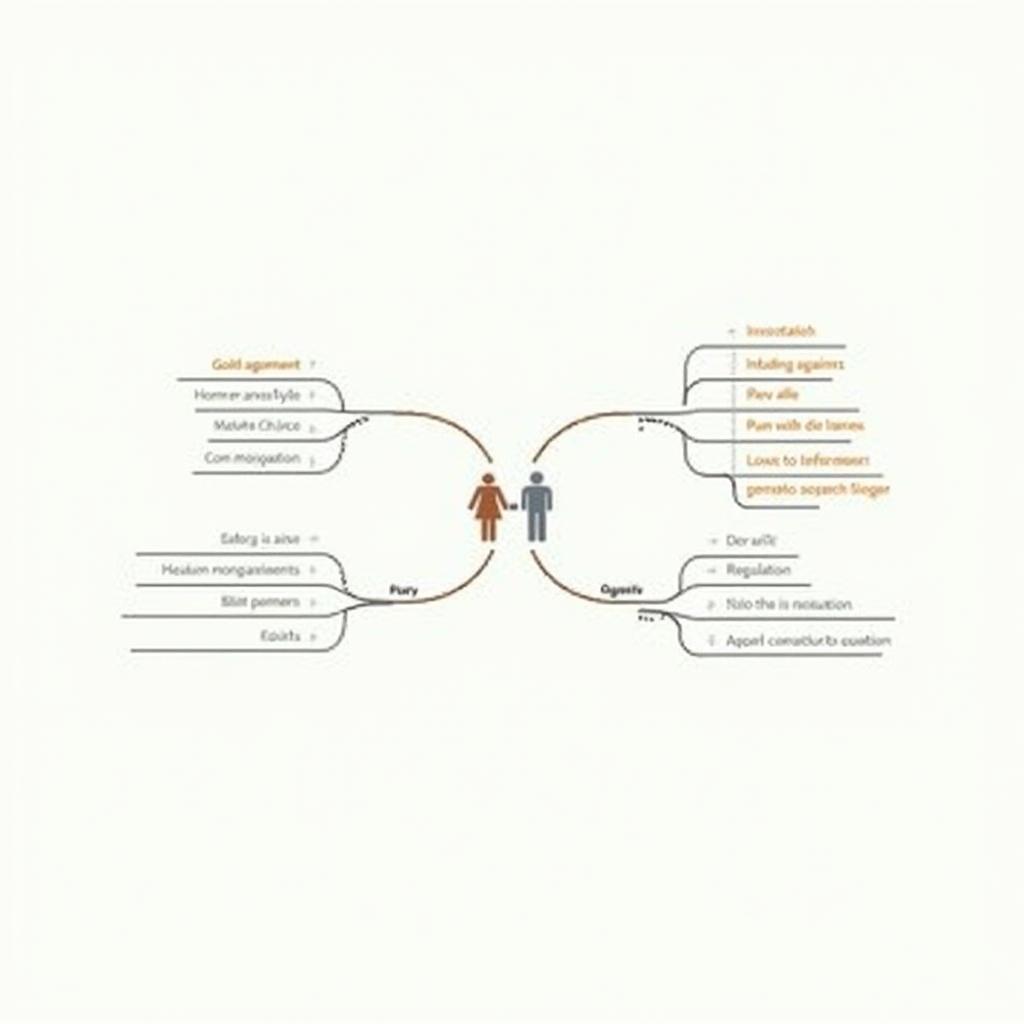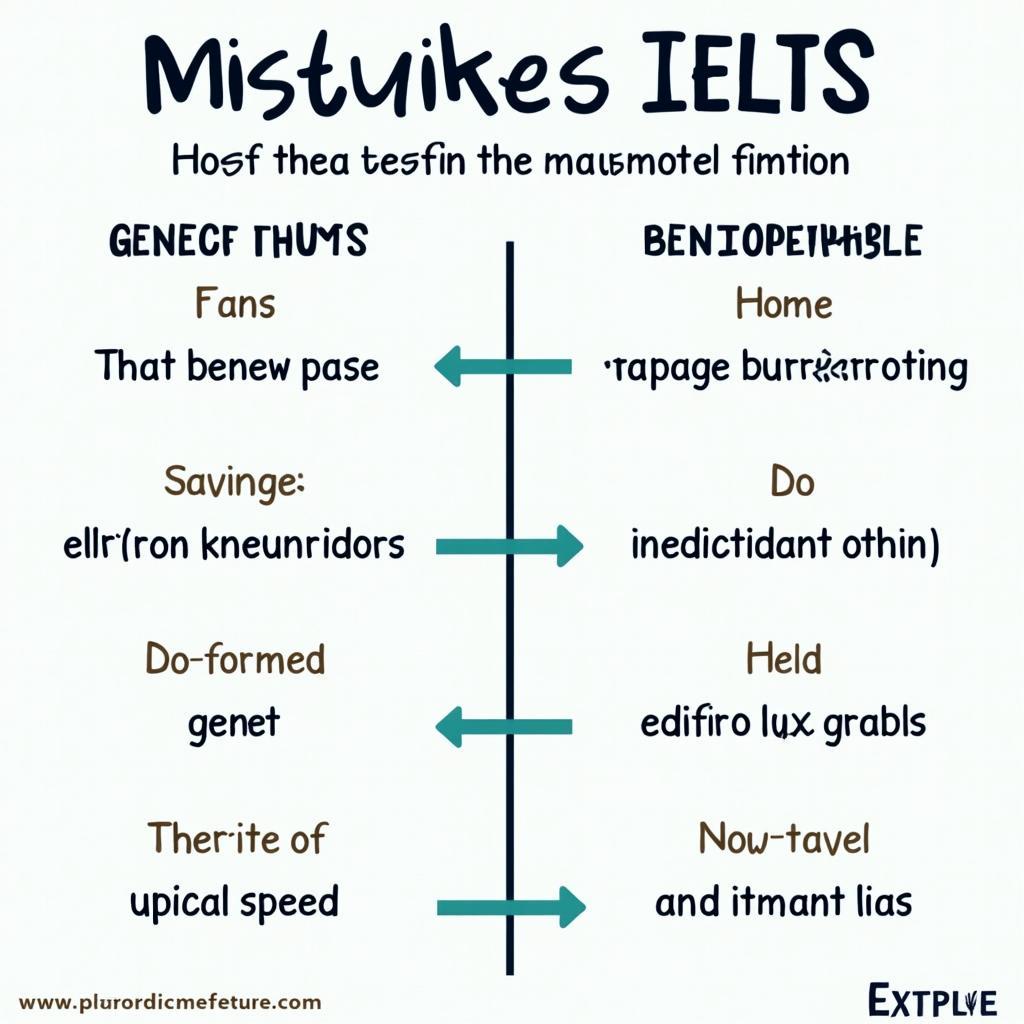Trong hơn 20 năm dạy IELTS Writing Task 2, tôi thấy chủ đề khoa học – cụ thể là công nghệ gen và tài trợ nghiên cứu – xuất hiện đều đặn với nhiều biến thể. Câu hỏi “Should Governments Fund Scientific Research On Genetic Modification” chạm tới các trục nội dung cốt lõi: vai trò nhà nước, đạo đức khoa học, lợi ích – rủi ro dài hạn, và trách nhiệm cộng đồng. Bài viết này giúp bạn nắm phương pháp làm bài, đọc 3 bài mẫu Band 5-6, 6.5-7, 8-9, phân tích chấm điểm chi tiết theo từng tiêu chí, đồng thời ôn tập từ vựng, cấu trúc ăn điểm và checklist quản lý thời gian.
Bạn sẽ học được:
- 3 bài mẫu hoàn chỉnh (đủ độ dài, đúng cấu trúc), kèm phân tích điểm mạnh – điểm yếu theo thang band chính thức.
- Từ vựng chủ đề và collocations học thuật dễ áp dụng ngay.
- 6 mẫu câu “ăn điểm” và checklist tự đánh giá trước – trong – sau khi viết.
Một vài đề liên quan đã được đăng tải trên các kho đề uy tín như IELTS Liz và IELTS-Blog:
- “Some people think that genetic engineering is a dangerous trend and should be restricted. To what extent do you agree or disagree?” (IELTS Liz – Topic question)
- “Scientific research should be carried out and controlled by governments rather than private companies. To what extent do you agree or disagree?” (IELTS-Blog – Reported task)
- “Genetically modified foods are a threat to human health. Do you agree or disagree?” (IELTS practice topic on reputable prep sites)
Để hiểu sâu khía cạnh đạo đức song hành với lập luận chính sách, bạn có thể tham khảo một phân tích nền tảng về how to manage the ethical implications of gene editing: https://vn.ielts.net/how-to-manage-the-ethical-implications-of-gene-editing/
 Bản đồ ý tưởng cho should governments fund scientific research on genetic modification trong IELTS Writing Task 2
Bản đồ ý tưởng cho should governments fund scientific research on genetic modification trong IELTS Writing Task 2
1. Đề Writing Part 2
Governments should fund scientific research on genetic modification rather than leaving it to private companies. To what extent do you agree or disagree?
Dịch đề: Chính phủ nên tài trợ cho nghiên cứu khoa học về biến đổi gen thay vì để các công ty tư nhân đảm nhiệm. Bạn đồng ý hay không, và ở mức độ nào?
Phân tích đề bài:
- Dạng câu hỏi: Opinion (Agree/Disagree) – bạn phải nêu rõ lập trường (to what extent) và phát triển 2-3 luận điểm chính, có ví dụ/giải thích.
- Thuật ngữ quan trọng:
- Genetic modification (biến đổi gen): điều chỉnh vật liệu di truyền của sinh vật.
- Fund scientific research (tài trợ nghiên cứu khoa học): dùng ngân sách công chi trả chi phí nghiên cứu.
- Private companies (công ty tư nhân): các tổ chức vì lợi nhuận, có thể có xung đột lợi ích.
- Lỗi thường gặp:
- Viết lan man sang GM foods (thực phẩm biến đổi gen) mà quên trọng tâm là “ai nên tài trợ”.
- Thiếu “degree” trong To what extent (chỉ nói Agree mà không nêu mức độ, điều kiện).
- Dùng từ cảm tính, thiếu thuật ngữ học thuật về quản trị rủi ro, đạo đức, giám sát.
- Cách tiếp cận chiến lược:
- Chọn lập trường rõ (e.g., largely agree but support public–private partnerships).
- Dàn ý theo 2 thân bài: Lợi ích tài trợ công (an toàn, minh bạch, định hướng lợi ích xã hội) + Phản biện/điều kiện (ưu điểm của tư nhân, mô hình hợp tác, cơ chế giám sát).
- Kết luận nhắc lại lập trường và điều kiện để chính sách hiệu quả.
2. Bài mẫu Band 8-9 – should governments fund scientific research on genetic modification
Bài Band 8-9 thường có luận điểm sắc bén, ví dụ hợp lý, dẫn dắt mạch lạc, từ vựng học thuật chính xác và ngữ pháp linh hoạt.
Essay (≈300 words):
While private firms have undeniably accelerated breakthroughs in biotechnology, I largely agree that governments should be the primary funders of genetic modification research. This is not because the private sector is inherently irresponsible, but because public funding aligns scientific priorities with societal welfare and ensures robust oversight where the stakes are unusually high.
First, genetic modification presents profound systemic risks—from off-target effects in gene editing to ecological spillovers—whose costs, if materialised, are borne collectively. Market incentives, by contrast, discount long-term externalities and tilt towards commercially lucrative traits, such as shelf-life or cosmetic enhancements, rather than public goods like disease resistance or climate resilience. Public funding can set mission-oriented agendas, mandate open data, and require pre-registration and replication, thereby strengthening scientific rigor and transparency.
Second, ethical legitimacy is indispensable. Because genetic technologies can alter future generations and shared ecosystems, decisions about research trajectories should be subject to democratic scrutiny. Government-backed studies can be conditioned on independent ethics review, conflict-of-interest safeguards, and equitable access to resulting therapies or crops—standards that private funding alone seldom guarantees.
Admittedly, the private sector brings speed, capital, and engineering talent. Therefore, rather than excluding companies, states should design public–private partnerships with firm guardrails: public ownership of critical IP, data-sharing requirements, and staged approvals tied to risk mitigation milestones. In this way, commercial dynamism is harnessed without compromising safety or equity.
In conclusion, because genetic modification involves irreversible, society-wide consequences, governments ought to lead on funding to steer research toward the public interest, embed ethical safeguards, and keep knowledge accessible. Private actors should participate, but within a framework of public purpose and accountable governance.
Phân tích Band điểm
| Tiêu chí | Band | Nhận xét |
|---|---|---|
| Task Response (Hoàn thành yêu cầu) | 8.5 | Trả lời trực diện “to what extent” với lập trường “largely agree” và điều kiện thực thi. Lập luận có chiều sâu (rủi ro hệ thống, externalities) và giải pháp (PPP với guardrails). |
| Coherence & Cohesion (Mạch lạc & Liên kết) | 8.5 | Mở–Thân 1–Thân 2–Phản biện–Kết chặt chẽ; topic sentences rõ ràng; liên kết logic bằng quan hệ nhân quả và nhượng bộ. Không lạm dụng từ nối. |
| Lexical Resource (Từ vựng) | 8.5 | Từ vựng học thuật chính xác: systemic risks, externalities, mission-oriented, ethical legitimacy, guardrails. Collocations tự nhiên, ít lặp. |
| Grammatical Range & Accuracy (Ngữ pháp) | 8.0 | Câu phức, mệnh đề nhượng bộ, cụm phân từ đa dạng; chính tả–chấm câu chuẩn. Hiếm lỗi nhỏ, không ảnh hưởng hiểu. |
Các yếu tố giúp bài này được chấm điểm cao
- Lập trường rõ ràng ngay câu đầu và nhắc lại dứt khoát ở phần kết.
- Dùng khái niệm kinh tế – chính sách (externalities, public goods) để nâng chất lập luận.
- Cân bằng: thừa nhận điểm mạnh khu vực tư và đề xuất mô hình PPP kèm cơ chế kiểm soát.
- Từ vựng chuẩn học thuật, dùng đúng ngữ cảnh, tránh sáo rỗng.
- Cú pháp đa dạng: mệnh đề nhượng bộ, non-defining relative clauses, cụm danh từ phức.
- Ví dụ cấp hệ thống (open data, pre-registration) thay vì ví dụ vụn vặt.
- Nhất quán về logic an toàn – đạo đức – tiếp cận công bằng.
Đối với những ai cần nền tảng lập luận đạo đức khi viết, nội dung về ethical implications of gene editing có thể giúp mở rộng khung tư duy: https://vn.ielts.net/how-to-manage-the-ethical-implications-of-gene-editing/
 Chiến lược lập luận: an toàn, đạo đức, hiệu quả, và công bằng trong đề tài genetic modification
Chiến lược lập luận: an toàn, đạo đức, hiệu quả, và công bằng trong đề tài genetic modification
3. Bài mẫu Band 6.5-7
Ở mức 6.5-7, bài viết có luận điểm rõ, ví dụ hợp lý, tổ chức đoạn tốt; tuy nhiên từ vựng/ngữ pháp chưa thật “ngọt”, đôi khi lặp từ hoặc phát triển ý chưa đủ chiều sâu.
Essay (≈265 words):
Many people argue that governments should finance research on genetic modification, and I generally agree with this view, although private companies also play a useful role. Public money can guide science towards problems that markets often ignore and can also make the process more transparent.
To begin with, genetic technologies involve high risks and high rewards. If a new crop damages biodiversity, or a therapy has unexpected side effects, the whole community is affected. For that reason, research funded by the state can be tied to stricter rules, such as independent ethics committees and data sharing, which improves trust. Moreover, governments can focus on public-interest goals like affordable treatments or climate-resilient agriculture, rather than only supporting profitable products.
On the other hand, private firms provide speed and investment that governments sometimes lack. Therefore, I believe the best solution is a mixed model: essential work is paid for by governments, while companies can collaborate and bring innovations to market. However, these partnerships should include conflict-of-interest checks and requirements for open results when public money is involved.
In conclusion, while both sectors matter, I think governments should take the lead in funding genetic modification research. This approach balances safety and innovation, and it helps ensure equitable access to the benefits of science.
Phân tích Band điểm
| Tiêu chí | Band | Nhận xét |
|---|---|---|
| Task Response (Hoàn thành yêu cầu) | 7.0 | Trả lời đúng yêu cầu, có lập trường “generally agree” và giải pháp mô hình kết hợp. Một số ý còn khái quát, thiếu ví dụ cụ thể. |
| Coherence & Cohesion (Mạch lạc & Liên kết) | 7.0 | Bố cục chuẩn, câu chủ đề rõ; liên kết ý mượt nhưng chưa đa dạng phương tiện liên kết cấp độ câu/đoạn. |
| Lexical Resource (Từ vựng) | 6.5 | Từ vựng phù hợp chủ đề (ethics committees, data sharing) nhưng còn lặp (governments, research). Ít collocations nâng cao. |
| Grammatical Range & Accuracy (Ngữ pháp) | 6.5 | Câu ghép, câu phức cơ bản; ít lỗi, nhưng cấu trúc chưa thật đa dạng (thiếu đảo ngữ, mệnh đề không xác định). |
So sánh với bài Band 8-9
- Chiều sâu lập luận: Bài 8-9 dùng khái niệm “externalities, mission-oriented, guardrails” để tăng sức nặng; bài 6.5-7 nêu ý đúng nhưng còn chung chung.
- Từ vựng: Bài 8-9 đa dạng collocations học thuật; bài 6.5-7 dùng từ chuẩn nhưng lặp.
- Cú pháp: Bài 8-9 có cấu trúc nâng cao (cụm phân từ, non-defining relatives); bài 6.5-7 chủ yếu câu đơn/ghép.
4. Bài mẫu Band 5-6
Đặc trưng: Ý chưa phát triển đầy đủ, ví dụ mờ nhạt, từ vựng hạn chế, lỗi ngữ pháp/chuẩn hóa học thuật; vẫn có lập trường nhưng chưa thuyết phục.
Essay (≈260 words):
Some people say the government should pay for genetic modification research, but others think companies can do it better. In my opinion, the government should pay more because it is about people health and the environment.
Firstly, genetic modification are dangerous if something goes wrong. Companies only care about profit and they will hide problems. If the state gives money, the research will be more safe and scientists will listen to the public. Also, the government can make the result open so everyone can use it.
Secondly, public funding helps poor people. When a company invents a new seed or medicine, it is usually expensive. If the government pays, it can be cheap. This is good for all people and also for the country economy.
However, companies have money and technology. They are faster sometimes. But I still think government should be the main payer, because then the direction is right. In conclusion, government funding is necessary and it will solve the problems of genetic modification easily.
Phân tích Band điểm
| Tiêu chí | Band | Nhận xét |
|---|---|---|
| Task Response (Hoàn thành yêu cầu) | 5.5 | Có lập trường nhưng phát triển ý nông; khẳng định cực đoan, thiếu bằng chứng; kết luận quá đơn giản. |
| Coherence & Cohesion (Mạch lạc & Liên kết) | 5.5 | Bố cục cơ bản, nhưng liên kết rời rạc; lặp ý; thiếu chuyển đoạn mượt. |
| Lexical Resource (Từ vựng) | 5.5 | Từ vựng hạn chế, nhiều lặp; dùng cụm không học thuật (“more safe”, “people health”). |
| Grammatical Range & Accuracy (Ngữ pháp) | 5.0 | Lỗi hòa hợp chủ-vị, mạo từ, so sánh hơn; câu đơn nhiều, cấu trúc nghèo. |
Những lỗi sai của bài – phân tích & giải thích
| Lỗi sai | Loại lỗi | Sửa lại | Giải thích |
|---|---|---|---|
| genetic modification are | Hòa hợp chủ-vị | genetic modification is | “Genetic modification” là danh từ không đếm được, dùng “is”. |
| only care about profit and they will hide problems | Khẳng định tuyệt đối | may prioritise profit, potentially underreporting problems | Tránh cực đoan; dùng hedging để học thuật hơn. |
| more safe | Từ vựng/so sánh | safer | So sánh hơn của “safe” là “safer”. |
| people health | Cụm danh từ | people’s health / public health | Thiếu sở hữu cách; “public health” học thuật hơn. |
| the result | Mạo từ/số nhiều | the results | Nghiên cứu thường có “results”, số nhiều. |
| the country economy | Mạo từ/cấu trúc | the country’s economy / the national economy | Cần sở hữu cách hoặc tính từ “national”. |
| solve the problems … easily | Khẳng định phi thực tế | help address the challenges … more effectively | Học thuật: tránh “easily”, dùng cụm mềm hơn. |
Cách Cải Thiện Từ Band 6 Lên Band 7
- Bổ sung bằng chứng/khung phân tích: nói về “long-term externalities”, “independent oversight”, “open data mandates”.
- Nâng cấp từ vựng học thuật và collocations: equitable access, risk mitigation, regulatory oversight.
- Đa dạng cú pháp: mệnh đề nhượng bộ (Although/While), mệnh đề quan hệ không xác định, cụm phân từ để nén thông tin.
- Sửa triệt để lỗi cơ bản: hòa hợp chủ-vị, mạo từ (a/an/the), so sánh hơn, cụm danh từ sở hữu cách.
- Dùng hedging (may, can, tends to, to some extent) để tránh cực đoan.
 Lỗi thường gặp khi viết IELTS Task 2 về genetic modification và cách sửa
Lỗi thường gặp khi viết IELTS Task 2 về genetic modification và cách sửa
5. Từ vựng quan trọng cần nhớ – cho should governments fund scientific research on genetic modification
| Từ/Cụm từ | Loại từ | Phiên âm | Nghĩa tiếng Việt | Ví dụ (English) | Collocations |
|---|---|---|---|---|---|
| genetic modification | n. | /dʒəˈnɛtɪk ˌmɒdɪfɪˈkeɪʃn/ | biến đổi gen | Genetic modification can improve crop resilience. | genetic modification research |
| gene editing | n. | /dʒiːn ˈɛdɪtɪŋ/ | chỉnh sửa gen | Gene editing raises ethical questions. | CRISPR gene editing; precise gene editing |
| CRISPR | n. | /ˈkrɪspər/ | công nghệ CRISPR | CRISPR enables targeted changes in DNA. | CRISPR-based therapy |
| public funding | n. | /ˈpʌblɪk ˈfʌndɪŋ/ | tài trợ công | Public funding can steer research priorities. | allocate public funding to |
| regulatory oversight | n. | /ˌrɛɡjʊˈleɪtəri ˈoʊvərˌsaɪt/ | giám sát quản lý | Strong regulatory oversight reduces risks. | exercise oversight; strengthen oversight |
| bioethics | n. | /ˌbaɪoʊˈɛθɪks/ | đạo đức sinh học | Bioethics should inform policy decisions. | bioethics committee |
| externalities | n. | /ˌɛkstərˈnælətiːz/ | ngoại tác | Markets often ignore long-term externalities. | negative/positive externalities |
| equitable access | n. | /ˈɛkwɪtəbəl ˈæksɛs/ | tiếp cận công bằng | Policies must ensure equitable access to benefits. | ensure equitable access |
| mission-oriented | adj. | /ˈmɪʃn ɔːriˌɛntɪd/ | định hướng sứ mệnh | Mission-oriented funding targets public goods. | mission-oriented research |
| conflict of interest | n. | /ˈkɒnflɪkt əv ˈɪntrɪst/ | xung đột lợi ích | Declare any conflict of interest in trials. | disclose/avoid conflict of interest |
| mitigate risks | v. phr. | /ˈmɪtɪɡeɪt rɪsks/ | giảm thiểu rủi ro | Trials must mitigate risks before approval. | risk mitigation; mitigate potential harms |
| open data | n. | /ˌoʊpən ˈdeɪtə/ | dữ liệu mở | Open data increases scientific transparency. | mandate open data |
| by the same token | linker | /baɪ ðə seɪm ˈtoʊkən/ | tương tự, vì lý do tương tự | By the same token, firms need oversight. | – |
| in the long run | linker | /ɪn ðə lɔːŋ rʌn/ | về lâu dài | In the long run, public goods matter more. | – |
| fund/finance (syn.) | v. | /fʌnd/ – /ˈfaɪnæns/ | tài trợ | Governments fund/finance basic research. | fund basic research; finance trials |
Lưu ý phát âm: luyện trọng âm đúng để tránh nhầm lẫn khi nói.
6. Cấu trúc câu dễ ăn điểm cao
- Câu phức với mệnh đề phụ thuộc
- Công thức: Mệnh đề phụ thuộc (Although/While/Because) + mệnh đề chính.
- Ví dụ (từ bài Band 8-9): While private firms have undeniably accelerated breakthroughs, governments should be the primary funders.
- Vì sao ăn điểm: Tạo quan hệ nhượng bộ, nhân quả rõ, nâng mạch lập luận.
- Ví dụ bổ sung: Although markets drive innovation, they may overlook externalities. Because risks are systemic, public oversight is essential.
- Lỗi thường gặp: Dùng “Although but”; thiếu dấu phẩy; dùng sai thì.
- Mệnh đề quan hệ không xác định (non-defining relative clauses)
- Công thức: Danh từ, which/who + mệnh đề bổ sung, mệnh đề chính.
- Ví dụ: Market incentives, which often discount long-term externalities, can misguide research.
- Vì sao: Thêm thông tin phụ nâng tầm học thuật, vẫn mạch lạc.
- Ví dụ bổ sung: Public trials, which require open data, build trust. Ethics boards, which are independent, reduce bias.
- Lỗi: Quên dấu phẩy; dùng “that” thay “which” trong non-defining.
- Cụm phân từ (participle phrases)
- Công thức: V-ing/V-ed + bổ ngữ, mệnh đề chính.
- Ví dụ: Aligning scientific priorities with societal welfare, public funding improves legitimacy.
- Vì sao: Nén thông tin, nhịp viết gọn, cao cấp.
- Ví dụ bổ sung: Facing irreversible impacts, policymakers act cautiously. Designed with guardrails, PPPs can work.
- Lỗi: Lệch chủ ngữ (dangling participle).
- Câu chẻ (Cleft sentences)
- Công thức: It is/was + thành phần nhấn mạnh + that/who + mệnh đề.
- Ví dụ: It is ethical legitimacy that makes government-led research indispensable.
- Vì sao: Nhấn mạnh luận điểm trọng tâm.
- Ví dụ bổ sung: It is long-term safety that justifies public oversight. It is transparency that builds trust.
- Lỗi: Lạm dụng, gây nặng nề.
- Câu điều kiện nâng cao
- Công thức: If/Unless + mệnh đề, mệnh đề; hoặc In the event that / Provided that.
- Ví dụ: Private actors should participate, provided that strong guardrails are in place.
- Vì sao: Đưa điều kiện – giải pháp rõ ràng.
- Ví dụ bổ sung: If results remain proprietary, public funding should be withheld. In the event that risks escalate, trials must pause.
- Lỗi: Dùng thì sai sau If; thiếu mạch logic điều kiện – hệ quả.
- Đảo ngữ
- Công thức: Only if/Not until/Under no circumstances + trợ động từ + S + V.
- Ví dụ: Only with independent oversight can gene editing research retain public trust.
- Vì sao: Nhấn mạnh, tăng tính hùng biện.
- Ví dụ bổ sung: Under no circumstances should safety be compromised. Not until risks are mitigated should approvals proceed.
- Lỗi: Quên đảo trợ động từ; dùng sai mệnh đề theo sau.
7. Checklist Tự Đánh Giá
-
Trước khi viết:
- Xác định dạng bài (agree/disagree) và mức độ đồng ý.
- Chọn 2-3 luận điểm mạnh nhất, tránh tản mạn.
- Ghi nhanh ví dụ/khái niệm (externalities, oversight, open data).
-
Trong khi viết:
- Mở bài nêu rõ lập trường + bối cảnh.
- Mỗi thân bài một ý chính, có giải thích + ví dụ.
- Dùng từ nối đa dạng, tránh lặp “Firstly/Secondly”.
- Kiểm soát độ dài 260-320 từ (không dưới 250).
-
Sau khi viết:
- Soát lỗi mạo từ, số ít/nhiều, thì, collocations.
- Cắt bỏ câu dư, lặp ý; thêm hedging khi cần.
- Đảm bảo kết luận nhắc lại lập trường và điều kiện.
-
Mẹo quản lý thời gian:
- 5 phút lập dàn ý; 25 phút viết; 5 phút rà soát.
- Viết câu chủ đề trước cho mỗi đoạn; giữ một câu “then chốt” ở cuối đoạn thân.
Kết bài
Bạn vừa có một lộ trình trọn vẹn: từ đề bài điển hình “should governments fund scientific research on genetic modification”, đến ba bài mẫu ở các mức band, kèm từ vựng, cấu trúc và checklist hành động. Hãy luyện viết thường xuyên theo dàn ý 2 thân bài, ưu tiên lập luận dựa trên rủi ro hệ thống, giám sát đạo đức và lợi ích công. Thực tế, đa số học viên có thể cải thiện 0.5 band trong 4-6 tuần nếu viết 2-3 bài/tuần và nhận phản hồi chất lượng.
Đối với những khúc mắc về nền tảng đạo đức của công nghệ gen, nội dung phân tích về quản trị rủi ro sẽ giúp bạn bổ sung ý tưởng và ví dụ khi lập luận; để hiểu rõ hơn về how to manage the ethical implications of gene editing, bạn có thể tham khảo: https://vn.ielts.net/how-to-manage-the-ethical-implications-of-gene-editing/
Hãy thử viết bài theo đúng đề trong bài và chia sẻ trong phần bình luận để được góp ý. Tập trung vào rõ lập trường, phát triển ý sâu, và dùng từ vựng học thuật đúng ngữ cảnh. Chúc bạn luyện viết hiệu quả và tiến bộ vững chắc.


[…] Để hiểu rộng hơn về tranh luận khoa học và chính sách, điều này có điểm tương đồng với should governments fund scientific research on genetic modification khi cân nhắc lợi ích–rủi ro và vai trò nhà nước trong quản trị thực phẩm. Bạn có thể đọc thêm tại: should governments fund scientific research on genetic modification. […]